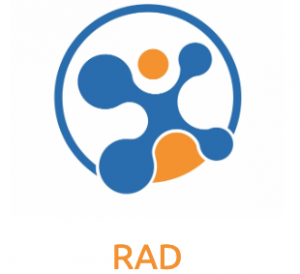
Companies do a lot to track human capital, but almost nothing to track social capital. Social Networks predict many important outcomes, like innovation potential, the likelihood of leaving the organization, where bottlenecks occur in the organization, and why certain individuals underperform.
RAD (Relational Analytics Dashboard) uses network data generated in Enterprise Social Media, such as Microsoft Teams and Slack, to provide predictive analytics about employee behavior. It can be used as a decision aid for important managerial decisions. It provides four ways to query the network:
- Learn about a Specific Employee
- Find an Employee with Certain Network Attributes
- Design a Team
- Diagnose the Organization’s Network
Learn more about RAD
RAD Case Study – Saving Milgram Health Inc. from a Global Pandemic
At the beginning of a pandemic, Sarah Griffith (the CEO of Milgram Health Inc.) believed that her company—one of the most diversified insurance companies in the U.S.—should quickly ramp up information technology-enabled health services. To implement the services, Sarah proposed standing up a 4-person task force that would be charged to spend no more than six months developing newer, effective, affordable, and personalized individual and family digitally enabled healthcare plans. Sarah saw how Relational Analytics Dashboard (RAD) was capable of identifying those at Milgram Health Inc. who, by virtue of their social networks, were more likely to come up with good ideas, influence others, or even quit. Now, Sarah asked YOU using RAD to help her with the challenge of selecting the task force from the shortlist based on the four final criteria she had deemed critical.
